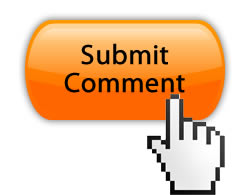The Dark Side of Reader Comments
 Interactivity has been the name of the game for websites for the last few years, and user-generated content (UGC) has been a mainstay of building content and boosting engagement. Indeed, “content marketing” is the latest web marketing buzzword and reader engagement is high on the list of goals. In contrast to a few years ago, today just about every content site, from tiny blogs to the largest news sites, allows readers to add comments. It seems like a complete win-win – readers can get heard, and the sites benefit from more engagement and additional content. It turns out that in some cases that “free” content comes with a price.
Interactivity has been the name of the game for websites for the last few years, and user-generated content (UGC) has been a mainstay of building content and boosting engagement. Indeed, “content marketing” is the latest web marketing buzzword and reader engagement is high on the list of goals. In contrast to a few years ago, today just about every content site, from tiny blogs to the largest news sites, allows readers to add comments. It seems like a complete win-win – readers can get heard, and the sites benefit from more engagement and additional content. It turns out that in some cases that “free” content comes with a price.
A new study, described by two of the authors in the NYTimes, looked at the effect of comments on how other readers interpreted an article, and the results were surprising. Ordinary comments didn’t change opinions of the readers – a sad thing, perhaps, for thoughtful comment writers who expect to inform and persuade those who read the article.
The comments that DID affect the opinions of the readers were those that used insulting language. All readers read the same comment content, but half of the readers saw comments which included gratuitous epithets, like, “You’re an idiot,” and “You’re stupid if you…” instead of more neutral language. The readers exposed to the nastier language became more opinionated and actually drew different conclusions from the story:
Uncivil comments not only polarized readers, but they often changed a participant’s interpretation of the news story itself… Those exposed to rude comments, however, ended up with a much more polarized understanding of the risks connected with the technology. Simply including an ad hominem attack in a reader comment was enough to make study participants think the downside of the reported technology was greater than they’d previously thought.
Community Building
I’ve run and administered large online communities, and have always tried to enforce civil discussion. Sometimes, this comes with the price of removing member content and banning members who are consistently rude or disrespectful to other members. That strategy has been based more on community building experience and my own preference for friendly, welcoming communities. Despite the occasional complaint about censorship (or, even more amusingly, that I was trampling on their “First Amendment Rights”), I’ve found that communities where civility reigns can prosper and grow. Communities where new arrivals are routinely “flamed” for asking dumb questions have more difficulty getting new members to stay engaged, and even long-time members quit when exposed to hostility.
With this research, I can see why civil discussions work and less civil discussions inevitably head downhill. The study didn’t look at any post-reading interaction, i.e., the subjects couldn’t add their own comments, but it’s easy to extrapolate. Reading rude comments polarized the opinion of the reader – given the opportunity to comment, that reader would almost certainly post a more polarizing and perhaps rude comment himself!
As more rudely expressed opinions build in a discussion, the nastiness feeds on itself. This is a phenomenon well-known to community moderators, and now this study gives us some background to go with real-world experience.
What’s a Site Operator to Do?
If you run a news site or a blog, it’s a bit demoralizing to think that a few comments from barely-literate morons can change the way readers view your own professionally written content. And, in case you missed it, the last sentence included a gratuitous epithet to help stir the passions of my own readers!
I stand by my belief in moderating rude comments. Yes, it’s labor-intensive. Yes, some outspoken people don’t like it when they can’t scream at others to make their point. But, it works.
Your Turn
With a little more hesitancy than usual, I’ll invite you to weigh in on this topic. What has your experience been as a commenter, community participant, blogger, or community operator? Does it bear out the researchers’ findings? Have you come up with any creative solutions? Leave a comment! (Remember, be nice…)
